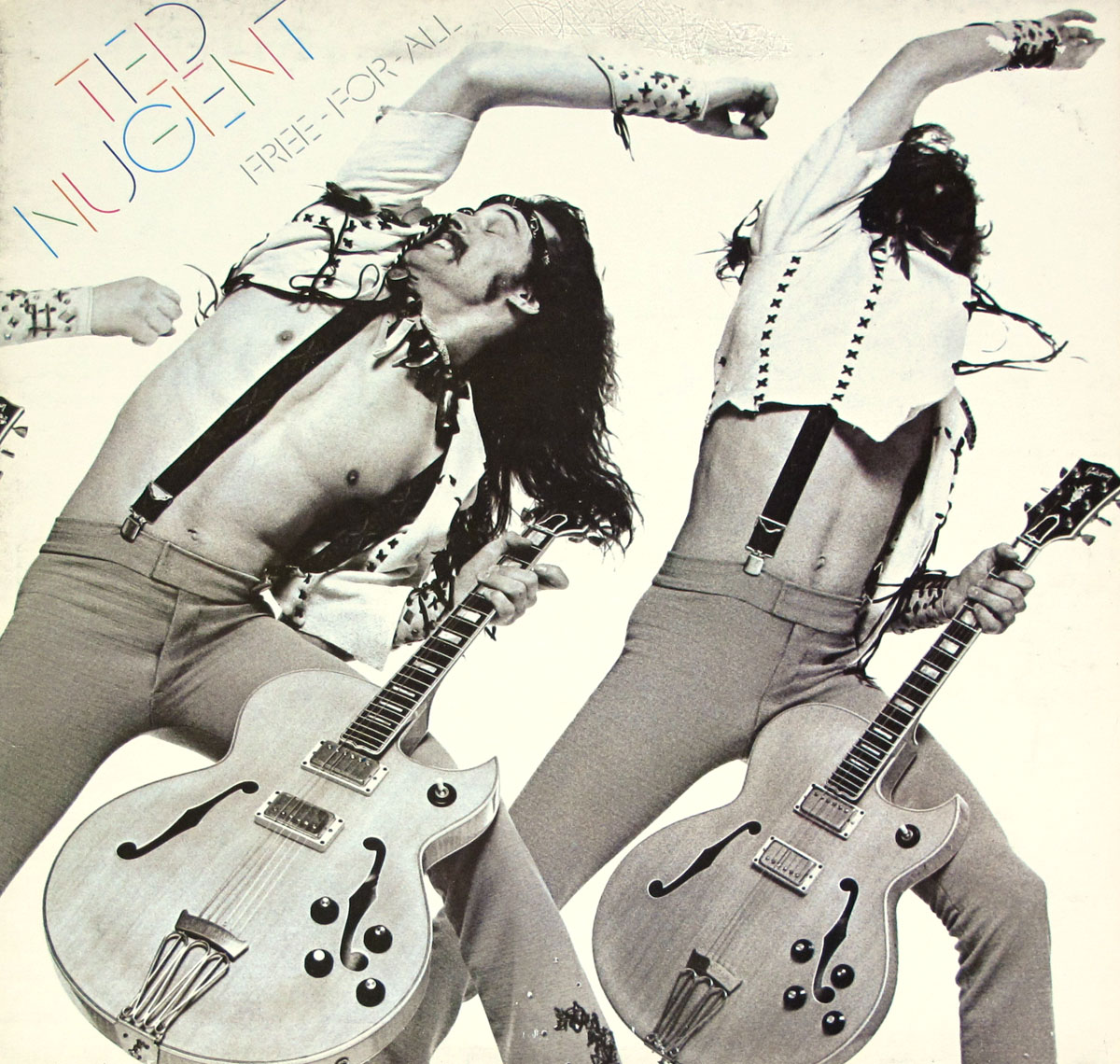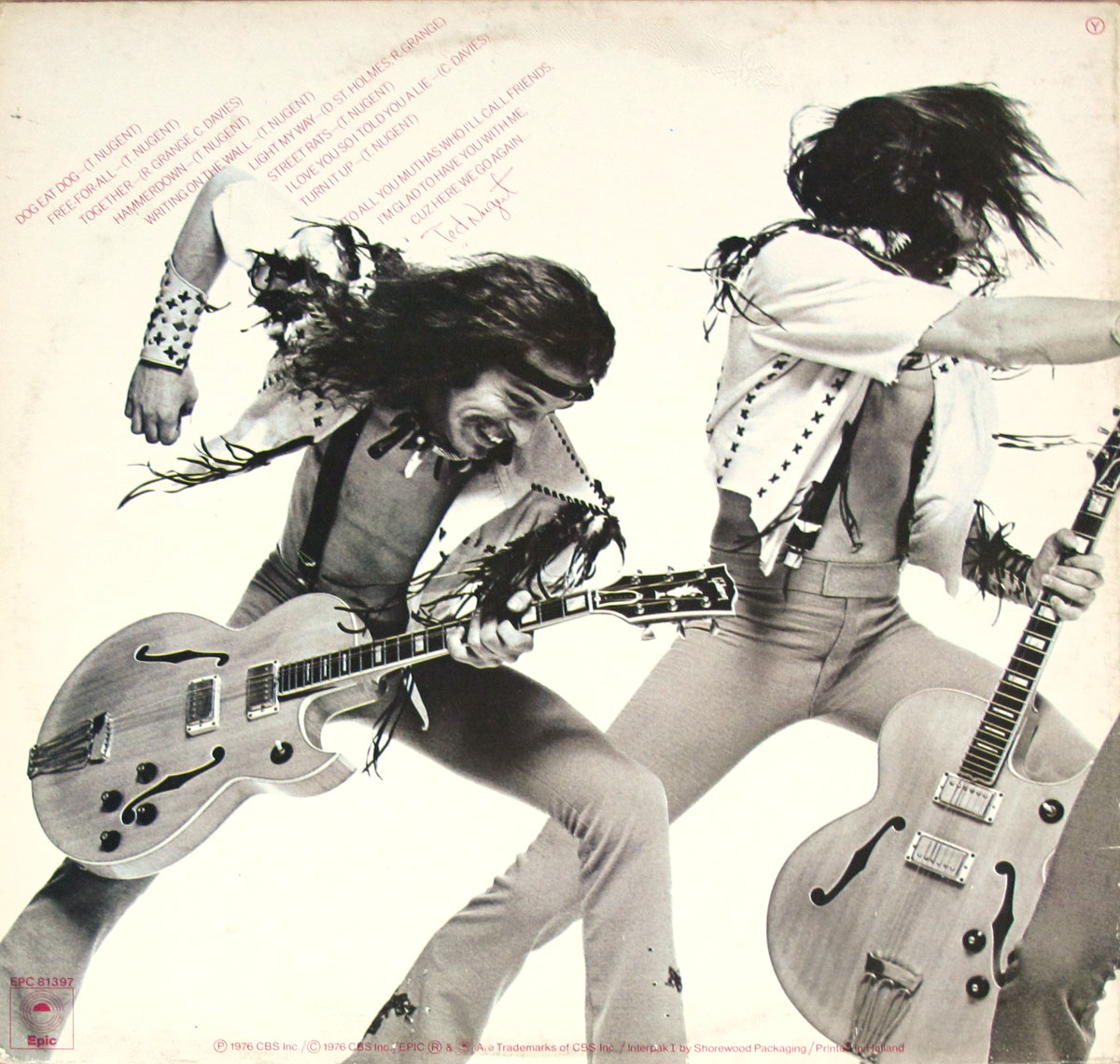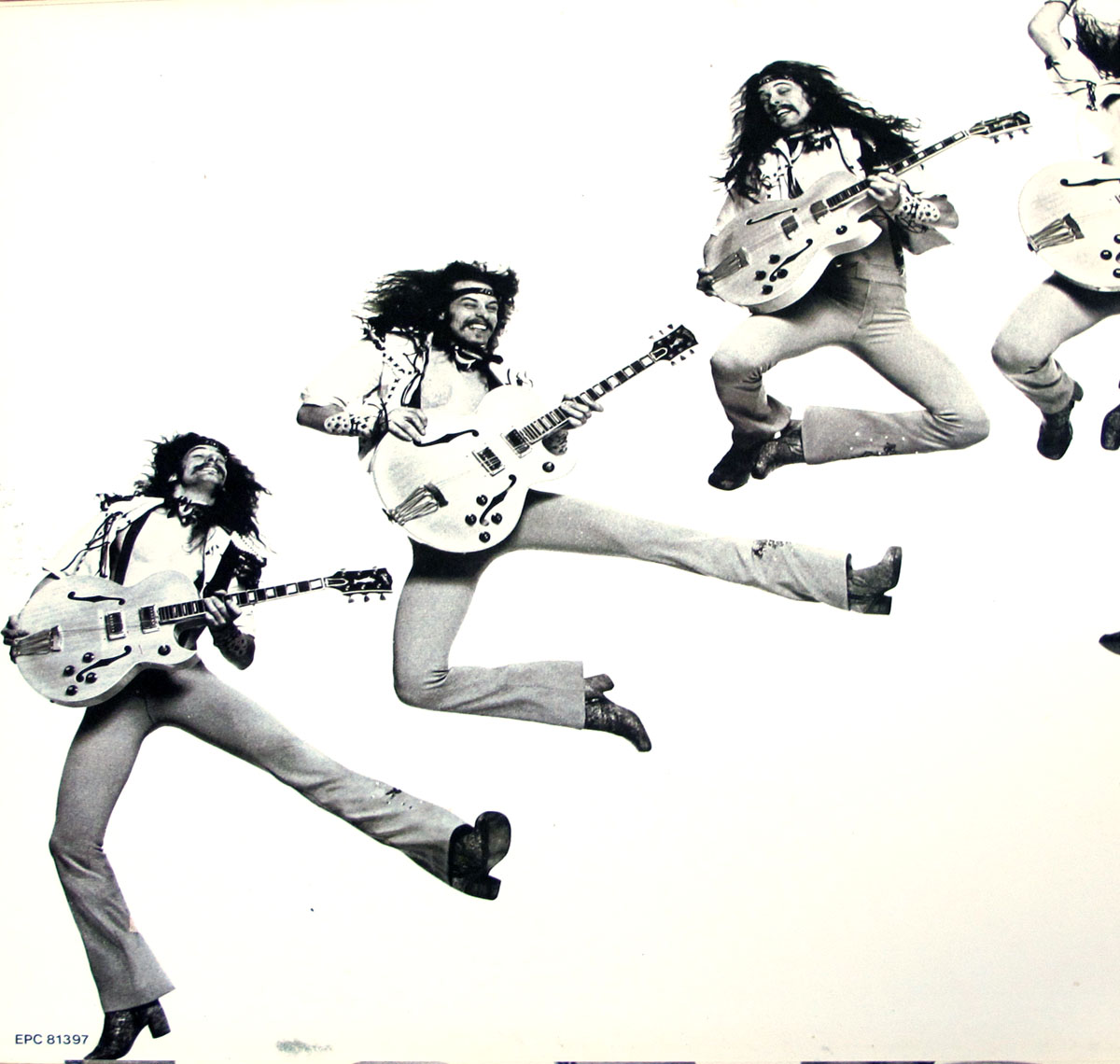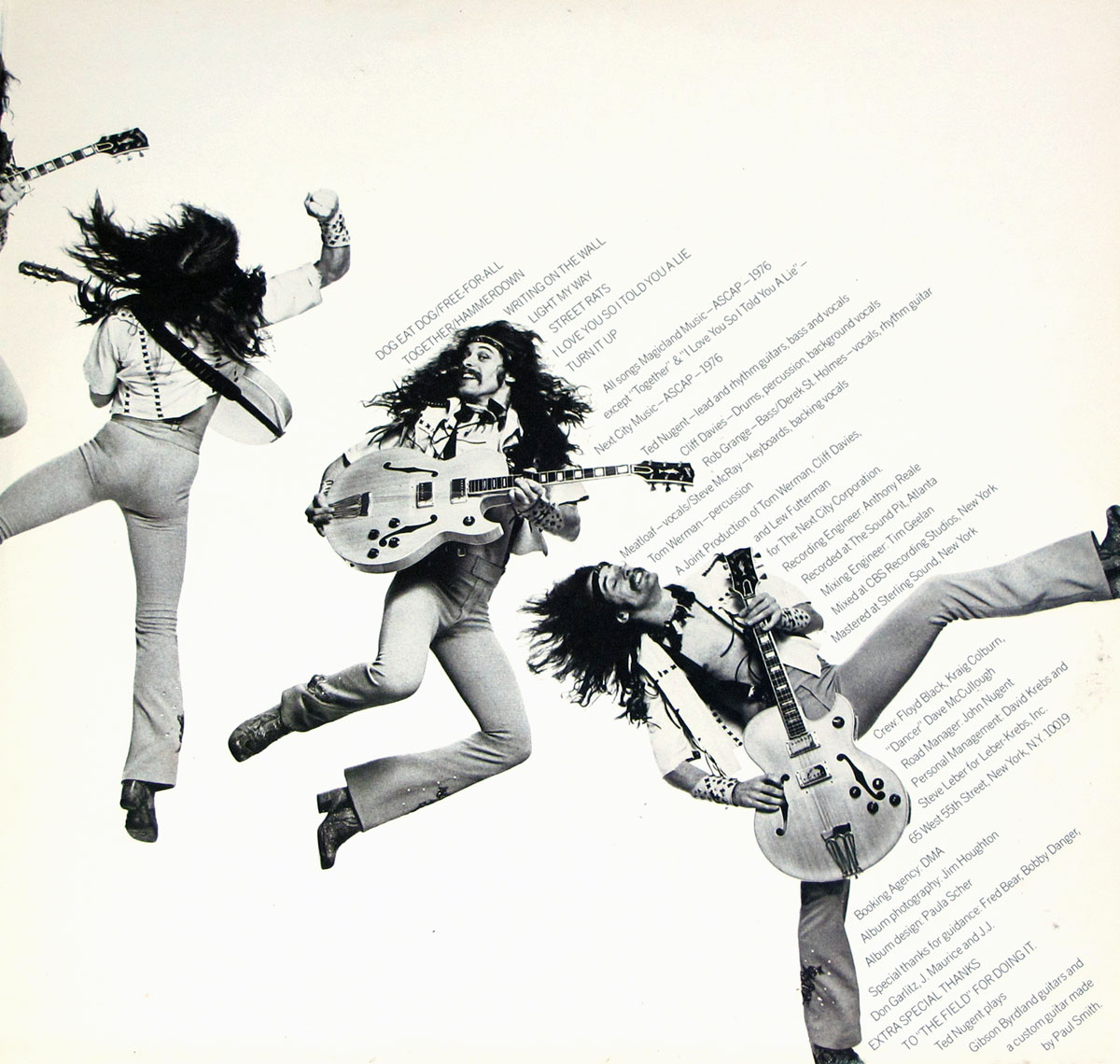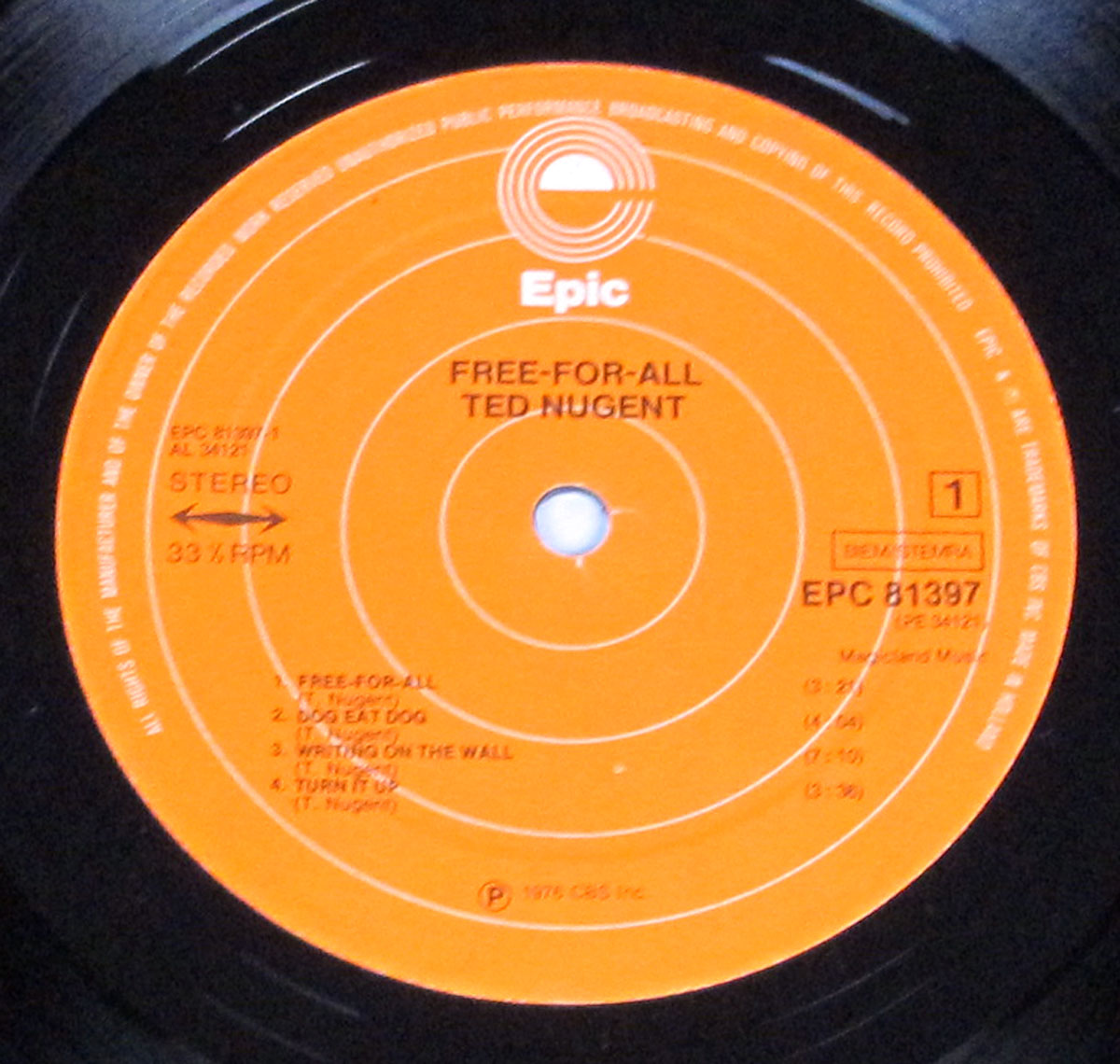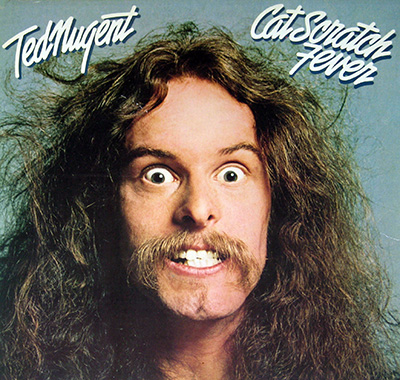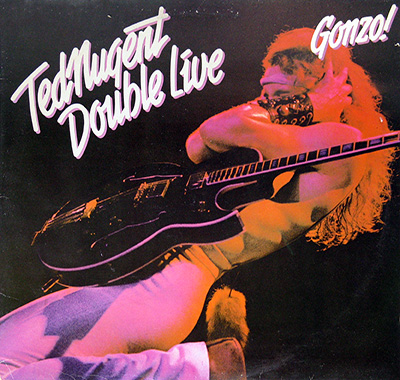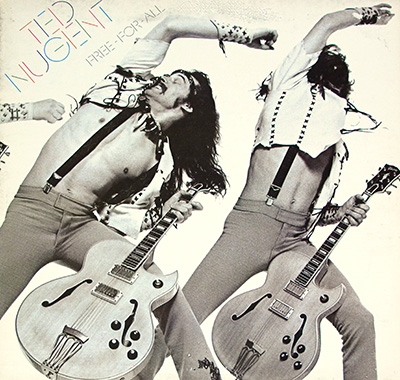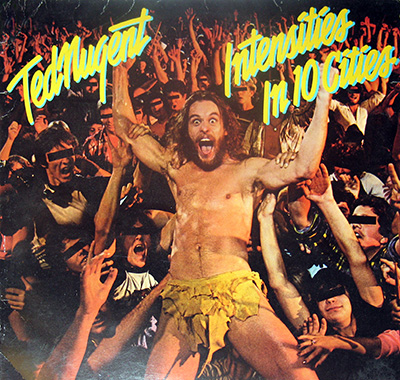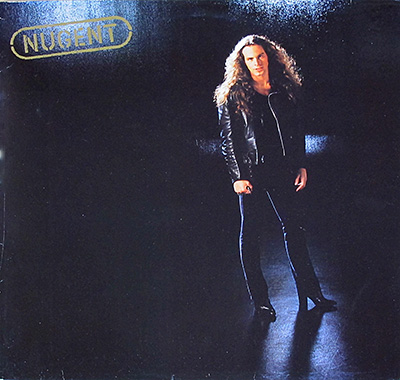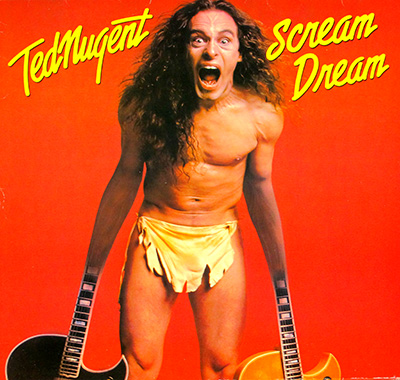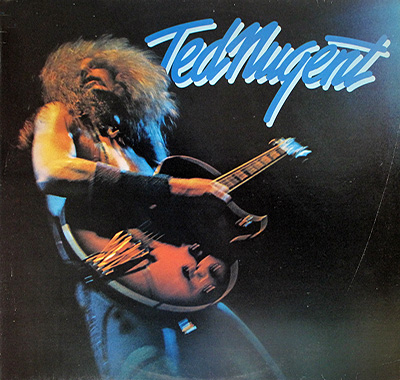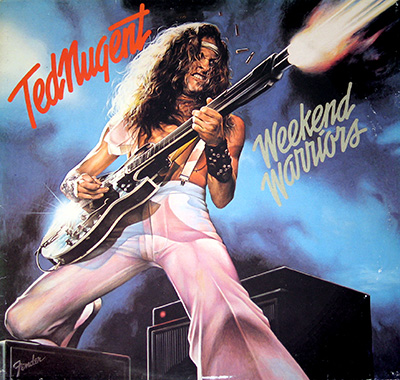TED NUGENT FREE FOR ALL FOC + Meatloaf 12" Vinyl LP Album
"Free-For-All" is the second release from Ted Nugent and his first album to go platinum. Rhythm guitarist and lead vocalist Derek St. Holmes left during the recording of the album due to growing conflicts between Nugent and himself, also citing the direction that the album was taking, as a reason. Holmes did sing on the tracks "Turn it Up", "Light My Way", "Dog Eat Dog", and an alternate version of "Street Rats", which was left unreleased until the 1999 Epic/Legacy reissue of the album. An unknown (at the time) vocalist named Meat Loaf was brought in to sing on some of the album's tracks that were meant for Holmes, Those tracks include "Writing on the Wall", "Street Rats", "Together", "Hammerdown", and "I Love You So I Told You a Lie". Nugent himself sang on the title track. Holmes would return to the group after the album was released for the subsequent tour.
